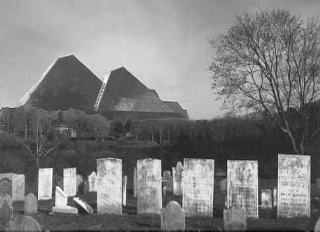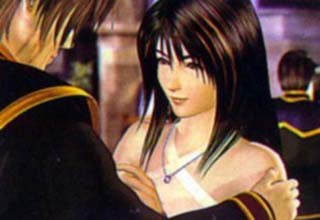![]()
By Zkman
| Roleplaying games are by far the most popular breed of qbasic title in existence. From Lianne to Dark Ages II and the wealth of other rpg projects being worked on now. But, for many of these titles, story and plot seem an afterthought, instead of the majority of design that they should cloak. "SVGA color" and "an amazing battle system" can't make up for this lack. Within, qb:tm will discuss 3 points that are critical to any RPG's success: backstory, events, and character interaction. So sheath your sword and come in for the ride. | Story and Plot *can't* be an afterthought |
|
Since the halycon days of computer design, great strides have been made on story design both on computer and on pencil and paper roleplaying. Instead of making a generic fantasy RPG, try looking at some of today's popular Roleplaying games for influence. What about Cyberpunk, where a form of the internet is more dangerous than weapons; or Fallout, where pimps and fantastic characters populate a post-apocalyptic scene; or Homeworld, where you are the last member of a spacefaring race trying to find it's home. Besides offering greater events and chances for character growth, these stories will seem more interesting to players of your game. Instead of going sci-fi or generic fantasy, try looking at historical literature for rpg story ideas. How about a game set in renassaince era Italy, with ruling families, and lots of seafaring? Or what about a game where you play a pirate running from British galleons whilst trying to "salvage" some booty from passing mercantile ships? Possibly being an American GI on a mission to assassinate Hitler in 1944 could be interesting? Maybe the Salem Witch trials, Imperial Japan and China, or Ancient Babylon are more along your lines. There are infinitisimal different backgrounds to use for your game; don't limit yourself to "Orcs and Trolls" fantasy Of course, if you really want fantasy, a background like Shadowrun's, where elves jack into networks, and cyborgs battle dragons could be more along your lines. |
Non-Tolkein fantasy settings... |

|
|
Events The things to remember when thinking up "events" are: Death, Explosions, and "Boss Fights". Many classic books feature one of the main character's dying, because this is something that will strike a player's heart. It's not enough just to have the character be struck down by an orc, though. Having a character sacrifice themselves, or die at the hands of an enemy who will reappear later in your game will inspire your character to keep playing. In non-fantasy settings, exploding something such as the main enemy's weapon, or having the enemy destroy the character's hometown, will have the same effect. Remember that blindly fighting battle after battle can be tedious. Be sure that events are fairly frequent in your game, and the player will continue and enjoy it more. |
Is your character in love? |

|
|
Character Interaction Player Character to Player Character interaction is fairly important, as theoretically, a group of players will remain together throughout the entire game. After events, perhaps their "friendship" towards each other will grow better or more hostile. Maybe 2 of the characters will grow a dislike of each other and you have to sort it out. Perhaps one of your PC's will become depressed and it's up to you to cheer him up and keep him fighting. In a game featuring only one main character (such as Zelda), PC to NPC fills the void left by the non-interaction the main character will have with other PC's. Love between two main characters has occured in nearly all famous literature and cinema because it adds more realism and depth to the monotonous enemy fighting. Many popular video games have drawn on this fountain, such as games in the Final Fantasy series, and even Super Mario Brothers, and you should definitely keep it in mind when designing your characters. PC to Enemy Interaction is the final thing that we'll talk about. First, you should write down some words to describe your enemy. Is he an enigma to the PC's, well-known in the world, or does the main character know him as a childhood friend? The main enemy and his cohorts should appear regularly throughout the game and should have a well-defined mission that the characters will discover. Riddle Games and taunting are also effective gameplay and storyline elements. Hopefully after reading this document, you guys' will be able to see the ways to create interesting and original Roleplaying storylines. And remember, Generic Fantasy sucks!
|